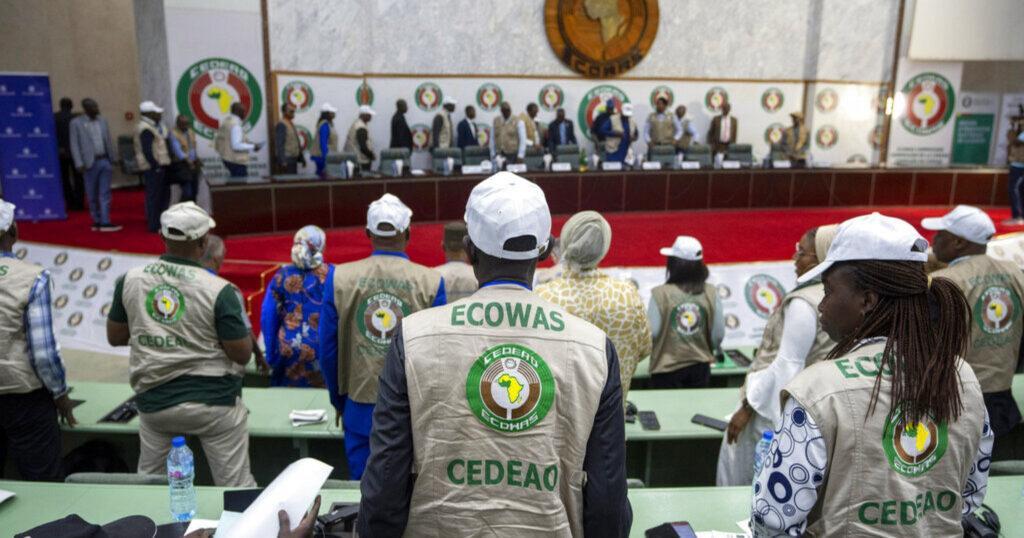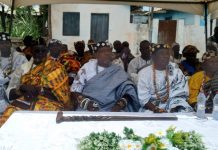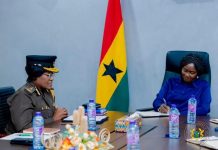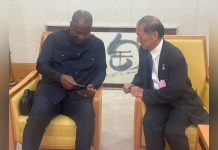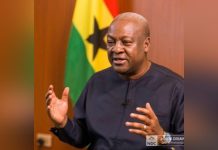Africa-Press – Ghana. West Africa is navigating one of its most turbulent democratic cycles in decades. Coups in Mali, Guinea, Niger, and Burkina Faso have challenged regional stability, while civilian governments elsewhere face rising discontent and shrinking legitimacy. Civil discontent in Togo threatens national stability, and in Côte d’Ivoire, President Alassane Ouattara’s is potentially bidding for a fourth term, amid a constricted political space, which threatens to reopen old wounds.
This fragility is unfolding just as the Economic Community of West African States (ECOWAS) moves to validate its long-awaited Standby Force Training Policy. The irony is stark: while the bloc is strengthening its security muscle, the political terrain it seeks to protect is fracturing. In this environment, preventive diplomacy – the art of engaging early, credibly, and strategically to avert political breakdown – has never been more essential, or more under strain.
Assessing the preventive diplomacy architecture
Preventive diplomacy, as defined by the United Nations, involves measures such as mediation, early warning, and confidence-building designed to stop disputes from escalating into violence. In West Africa, ECOWAS has historically shown leadership in this field. The 2001 Supplementary Protocol on Democracy and Good Governance banned unconstitutional changes of government and affirmed term limits, setting a high regional benchmark. This commitment has at times been matched by action, most recently in early 2025 when ECOWAS dispatched a high-level mission to Guinea-Bissau to mediate a tense dispute over the presidential term limit before it could trigger wider instability. Although the mission faced political resistance and withdrew early, it demonstrated the bloc’s willingness to engage directly in high-stakes situations. Such proactive engagement builds on earlier successes, notably the swift mediation during The Gambia’s 2016–2017 post-election crisis, when regional leaders combined shuttle diplomacy with the credible deterrence of a standby force to persuade outgoing President Yahya Jammeh to step down peacefully, averting a potential conflict
Yet these democratic norms are eroding. The case of Côte d’Ivoire is particularly instructive. Under the country’s 2016 Constitution, a president can only be re-elected once, making two five-year terms the legal maximum. Ouattara’s controversial third term bid in 2020 already sparked widespread protests, and the prospect of a fourth is politically combustible. Ironically, Côte d’Ivoire has been seen as one of West Africa’s relatively stable post-conflict democracies. However, Côte d’Ivoire’s stability since its 2010–2011 post-electoral crisis masks deeper tensions: opposition leaders have been sidelined, media freedoms are curtailed, and civil society is under pressure. Such patterns mirror Guinea under Alpha Condé and Mali under Ibrahim Boubacar Keïta, who were both overthrown after similar democratic backsliding. Sanctions in these cases lacked bite, and inconsistent responses to constitutional manipulation have weakened ECOWAS’s deterrent power. Preventive diplomacy must therefore be recalibrated to match today’s challenges, moving beyond rhetorical concern to agile political engagement, operational readiness, and credibility rooted in the consistent enforcement of democratic norms.
ECOWAS and Nigeria’s strategic posture and responsibilities
Under President Bola Ahmed Tinubu, Nigeria has reaffirmed its role as a driver of peace and stability in West Africa. As ECOWAS Chair from July 2023 to June 2025, Tinubu convened an extraordinary summit within days of Niger’s military takeover, signalling that the bloc cannot afford hesitation in moments of rupture. Nigeria’s approach combined firmness – keeping the Standby Force on the table – with active mediation, recognising that sustainable solutions rarely come from coercion alone. As the region’s largest economy, most populous state, and a democracy forged through its own struggles, Nigeria holds unique moral and political weight. The challenge is to deploy that weight not only in times of open crisis but in the periods when democratic decay is visible but still reversible.
Côte d’Ivoire’s political trajectory underscores why preventive diplomacy must begin upstream. Though stable for over a decade, the country is showing signs of democratic stress: the prospect of constitutional change, narrowing civic space, and the sidelining of dissent. This is precisely when proactive engagement matters most, not to dictate outcomes, but to keep dialogue open, reinforce institutional safeguards, and prevent vacuums that opportunistic actors can exploit. Nigeria can lead here, using ECOWAS’s Early Warning and Response Network and mediation mechanisms to address risks before they escalate. The recent validation of the Standby Force Training Policy is a critical development, but force should remain a last resort. Deterrence depends not just on readiness to act, but on a political environment where early warnings translate into swift, preventive action.
If Côte d’Ivoire illustrates the need for early engagement, Togo shows the deeper challenge of sustaining public trust in regional diplomacy. In 2024, Togo’s parliament adopted sweeping constitutional changes, replacing the presidential system with a parliamentary model that effectively entrenched President Faure Gnassingbé’s rule. This institutional reshaping, combined with long-standing grievances over governance, ignited protests in June 2025 over economic hardship and political exclusion. The arrest of dissident rapper “Aamron” became the flashpoint for a broader youth-led movement. ECOWAS responded with calls for restraint and dialogue, an archetypal act of preventive diplomacy aimed at halting escalation before violence spirals. Yet this intervention is unfolding in a context of deep scepticism toward the bloc itself. An Afrobarometer survey revealed that 54 per cent of Togolese now lean toward withdrawing from ECOWAS and aligning with the Sahel Alliance (AES).
This disaffection is a central obstacle. Preventive diplomacy depends on legitimacy. Without public trust, even well-intentioned mediation risks being seen as external interference rather than collective problem-solving. For Nigeria and ECOWAS, Togo is a reminder that preventive diplomacy must operate on two fronts: addressing the immediate triggers of unrest while repairing the long-term relationship between citizens and the institutions meant to safeguard their rights.
The Standby Force offers ECOWAS a deterrent capability it has long needed, but military preparedness should not overshadow the less visible work of diplomacy. Preventive action is cheaper, less risky, and more sustainable than crisis intervention, yet it often receives fewer resources and less political backing. For preventive diplomacy to succeed, ECOWAS must apply democratic norms uniformly, regardless of the country or leader involved, and act early when red flags emerge, such as eroded term limits, politicised judiciaries, and shrinking civic space. This engagement must not be limited to state actors but should extend to civil society, youth movements, and local leaders, whose trust is vital to any long-term peace architecture.
Opponents of regional intervention often invoke sovereignty, but in an interconnected era, sovereignty and responsibility are inseparable. A destabilised West Africa poses threats far beyond its borders, fuelling irregular migration, disrupting trade, and creating fertile ground for transnational crime and extremist violence. Principled, timely engagement can shape the regional response to crises. But leadership in West Africa today requires a shift: from reacting to coups to anticipating the conditions that cause them.
The path of preventive diplomacy is not glamorous. It is slower, often invisible, and requires patience in the face of complex political realities. Yet it remains the surest route to durable peace. The alternative, indifference until the next coup, would undo decades of democratic progress. ECOWAS stands at a crossroads. Its choice will determine whether West Africa moves toward deeper instability or reclaims its trajectory of democratic consolidation. The courage to act early, consistently, and credibly must define the next chapter. And in that chapter, Nigeria must lead with power and principle.
LSE
For More News And Analysis About Ghana Follow Africa-Press


